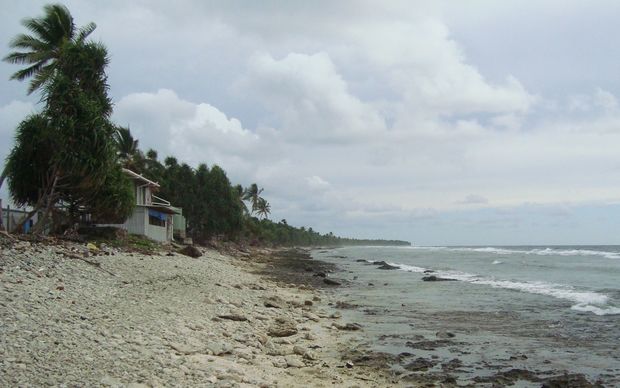
Global temperatures are likely to shoot past the agreed safety limit of 2 degrees Celsius even if a deal is reached at the upcoming Paris climate summit, UN climate chief Christiana Figueres said in Brussels.
The problem is that the pledges made by countries ahead of the COP21 talks on how they would reduce their emissions “do not add up to 2 degrees,” said Figueres, executive secretary of the UN Framework Convention on Climate Change (UNFCCC).
Two degrees above pre-industrial temperatures has been agreed by countries as a threshold beyond which climate change risks become unacceptably high.
Instead, the climate promises now on the table mean a temperature increase of about 3 degrees by the end of the century, Figueres warned the European Parliament. But even that scenario is better than what would happen without an agreement in Paris, which would mean a global temperature increase of 4-5 degrees Celsius.
“Three degrees is much better than 4 to 5 degrees, but it is still unacceptable,” she said.
That level of potential warming worries scientists.
“Three degrees of warming increases the risk of strong sea level rise from, for example Antarctica, or the collapse of marine ecosystems, such as Arctic sea ice or coral reefs,” Anders Levermann of the Potsdam Institute for Climate Change Research, told the Carbon Brief for a paper on the effects of overshooting the 2 degree target. “Beyond two degrees of warming we are leaving the world as we know it.”
So far, 62 country pledges — so-called Intended Nationally Determined Contributions (INDCs) — have been made ahead of COP21, accounting for almost 70 percent of global emissions. These commitments spell out the steps countries will take after 2020 to cut emissions and strengthen resilience to climate change risks.
Although Figueres said any deal hammered out in Paris won’t be a “miraculous solution,” she did say that the summit marks the beginning of a long-term process.
The question is how to ensure that countries will increase their ambitions over time. The EU, under the leadership of Miguel Arias Cañete, the climate action and energy commissioner, has been pushing hard for an agreement that includes regular, five-year reviews and strong transparency and accountability rules to ensure countries not only implement their promises but boost their efforts.
For Figueres, the combination of national climate action pledges, regular review cycles and a long-term goal constitute the “triangle of ambition” that must be the heart of a Paris agreement. “We need to end Paris with a legally binding text,” one that is clear, concise and comprehensible, she said.
Her visit came just days before EU environment ministers meet to sign off on the bloc’s negotiating position for the Paris talks. Her comments should serve as a warning to them that COP21 must build a system to keep climate change under control, said Liz Gallagher of E3G, an environmental think tank.
“Paris must be more than just the aggregate of the pledges,” she said. “It’s not a one-off deal for emissions reductions.”
But, the level of ambition ahead of a Paris agreement also implies a monumental effort for many poorer and developing countries to shift to a low-carbon economy.
“This is a huge request,” Figueres said, adding that developed countries will have to step up with new technologies, rules, environmental standards and incentives, and cash to help poorer countries with the transition.
“There is no doubt that financial and technical support for the transformation in developing countries is a very important piece of the puzzle in Paris,” she said.
